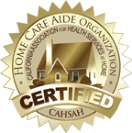Chronic obstructive pulmonary disease or COPD is a serious, yet common, illness in the elderly. It interferes with how the lungs work and makes breathing difficult. COPD develops slowly and can worsen over time. Symptoms may include: shortness of breath; wheezing; excess sputum production; chronic cough; weakness and exhaustion; and chest tightness.
Smoking has long been known to damage the lungs and is the leading cause of COPD. But it can also be caused by: long-term exposure to industrial pollutants; a history of respiratory infections; and a genetic condition known as AAT deficiency. Other risk factors include age, gender, and socio-economic status.
COPD usually involves a combination of respiratory ailments. Chronic bronchitis results from constantly inflamed and irritated airways in the lungs; it can cause a chronic, productive cough. Emphysema occurs when small air sacs in the lungs are damaged and lose their ability to stretch; this makes it harder for the lungs to function properly.
If you smoke, now is the time to quit. Make sure that you are not exposed to secondhand smoke and other irritants such as air pollution, dust, pet dander, feathers (in pillow), aerosol sprays, and chemicals. Hand hygiene is important; you need to wash your hands often. Do not let people with respiratory infections visit or come in contact with you. Drink plenty of fluids which can help loosen mucus and make it easier to bring up. Air-conditioners, air cleaners, humidifiers and dehumidifiers may help; ask your health care provider which machine would be best for you. Eat nutritious meals and limit your sodium, caffeine and alcohol intake. Avoid foods that can cause gas and a bloated abdomen–beans, cabbage, broccoli, brussels sprouts, and carbonated beverages. Consult with your health care provider on what exercise program is good for you. Lastly, make sure that you get an annual flu shot and a pneumonia shot.
Talk to your health care provider right away if you: cough up green, yellow or gray phlegm, or if there is blood in your sputum; you have unusual changes in your breathing; and you show any other signs of an infection, such as a sore throat or fever. Get emergency help if you have extreme shortness of breath or develop bluish nails or skin. Living with COPD can be tough, but you don’t have to settle for a life defined by it.







